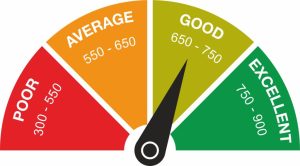Is Margin Interest Deductible Against Capital Gains?

Investing can be really exciting. Watching your money grow, making choices that actually work out it feels good. But let’s be honest: investing also comes with its fair share of confusion, especially when taxes get involved.
One topic that often trips people up is margin interest. More specifically, can you deduct it from your capital gains when tax season rolls around? At first, it might seem like a yes-or-no question. But as with many things involving the IRS, the answer has a few twists.
And these twists matter. Because if you’ve borrowed money to invest or are thinking about it understanding how the tax rules work can save you a lot of money. Or prevent you from leaving money on the table. Either way, this is something worth getting a handle on.
Let’s break it down, step by step, in plain English.
What Is Margin Interest?
When you buy on margin, you’re basically borrowing money from your brokerage to buy more investments than you could with just your own cash. Your existing investments act like collateral—kind of like putting up your house for a loan.
The brokerage charges you interest on the money you borrow. That’s what we call margin interest. It’s like paying interest on a credit card, except it’s for investing instead of shopping. If you make money on your investments, borrowing can boost your gains. But if things go south, losses can hit even harder.
So that interest you’re paying can you write it off on your taxes? That’s what we’re here to figure out.
General Tax Rules on Margin Interest Deductibility
The IRS does let you deduct margin interest in some cases, but there are a few rules to keep in mind:
- It has to be used for investments. If you borrowed money to buy stocks or bonds that are taxable, you’re in the clear. But if you used it to buy something like municipal bonds (which are tax-free), you can’t deduct the interest.
- You have to itemize. If you take the standard deduction when filing your taxes, you won’t be able to deduct margin interest. You need to go the itemized route.
- There’s a limit. The amount you can deduct depends on something called your “net investment income.” If your interest expense is higher than your investment income, you may not be able to deduct it all right away. But the good news is, you can carry the extra forward to next year.
What Qualifies as Net Investment Income?
This part’s important, because your deduction depends on it.
Net investment income includes money you make from things like:
- Interest from bank accounts, bonds, or CDs
- Dividends from stocks
- Profits from selling investments (aka capital gains)
- Rental income from property
- Royalties from things like books or music rights
But not all income counts. For example, interest from municipal bonds doesn’t count. Neither do certain profits from selling your house—at least not if they fall under the IRS exclusion rule for primary residences.
If you’re not sure what qualifies, it’s okay. This is where a good accountant can really help.
Deducting Margin Interest Against Capital Gains
So here’s the main question: Can you deduct margin interest from your capital gains?
Yes, you can. But (and there’s always a but) there are some details to understand:
- Short-term capital gains—which come from investments you’ve held for one year or less—can be used to offset margin interest without any special steps. The IRS treats these gains like regular income.
- Long-term capital gains—from investments held longer than a year—are usually taxed at lower rates. If you want to use these to deduct margin interest, you’ll have to make an election on your tax return. Basically, you’re telling the IRS, “I want to treat some of these gains like regular income so I can deduct my interest.”
Just be careful. Treating long-term gains as regular income might increase your tax bill. It’s a tradeoff. You get the deduction, but you might lose the benefit of lower tax rates on your gains.
Oh, and you’ll need to fill out IRS Form 4952 to report all of this.
How to Calculate Margin Interest
Now, let’s talk about how to actually figure this stuff out.
- Add up all your investment interest expenses. This includes all the margin interest you paid during the year.
- Figure out your net investment income. That’s your total from interest, dividends, capital gains, and so on—excluding anything tax-exempt.
- Compare the two. You can only deduct the smaller of the two numbers. So if you paid $2,000 in margin interest but only had $1,500 in net investment income, you can only deduct $1,500 this year. The remaining $500 can be used next year.
- File the paperwork. Use Form 4952 to report your numbers. If you’re using tax software, it should guide you through it step by step.
The Bottom Line
Margin interest might seem like a small line item on your brokerage statement, but it can make a real difference come tax time.
If you borrow money to invest, and you’re paying interest on that loan, there’s a decent chance you can deduct it. That’s good news—but only if you follow the rules. Miss a step or miscalculate your investment income, and you could miss out on the deduction altogether.
Tax rules around this stuff aren’t always easy to follow, but they’re worth learning. A little planning and attention to detail can lead to real savings.
Tips for Margin Interest Tax Deductions
- Keep track of everything. Make sure you have good records of how much interest you’ve paid and what investments you’ve bought.
- Check your income. If you don’t have much taxable investment income this year, you might not be able to deduct all your margin interest right away. But don’t worry—it can carry over.
- Think carefully about long-term gains. Making the election to treat them as regular income can be helpful, but it also has downsides. Do the math or talk to a pro.
- Plan ahead. If you know you’ll have margin interest, consider adjusting your investment mix to generate more taxable income that year.
- Stay updated. Tax laws can change, so it’s a good idea to check in each year or work with someone who keeps up with the latest rules.
Margin interest and capital gains might not sound thrilling, but understanding how they work together can make a big difference. It’s not just about saving on taxes—it’s about being a smarter, more strategic investor. And honestly, that’s pretty exciting, too.






